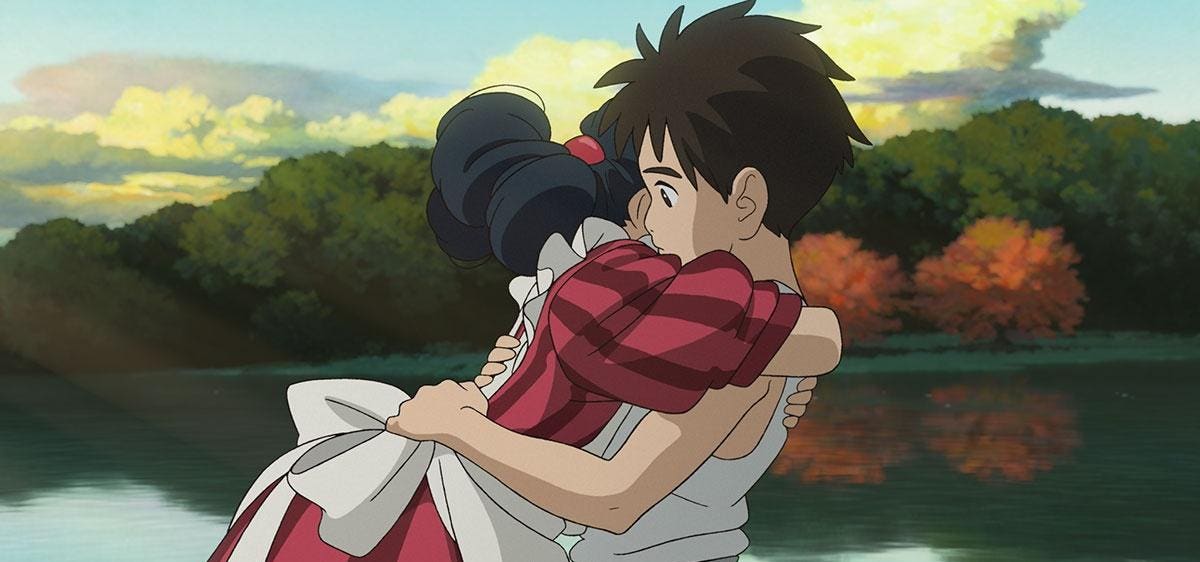The first film in a decade from visionary filmmaker Hayao Miyazaki, The Boy and the Heron was named as the opening film for the Toronto International Film Festival (TIFF) and will also screen at the New York Film Festival (NYFF) and BFI London Film Festival. The Boy and the Heron has several top celebrities voicing its characters, like singer-actors Masaki Suda (as the Grey Heron), Ko Shibasaki (as Kiriko) and Takuya Kimura (as Shoichi Maki), as well as singer-songwriter Aimyon (as Lady Himi). The film’s music is composed by frequent Ghibli collaborator, Joe Hisaishi.
The Studio Ghibli work was released domestically in Japan on July 14 and notched the all-time biggest opening weekend for a Miyazaki film, gaining US$14 million over four days. The film has since netted around US$55.6 million at the domestic box office.
From October 2023, Studio Ghibli will become a subsidiary of Nippon Television Holdings, led by Hiroyuki Fukuda, the senior operating officer and board director at Nippon TV. Current president of Studio Ghibli, Toshio Suzuki, will become chairman, while Miyazaki will take on the position of honorary chairman. These changes were announced on September 21.
Why Miyazaki came out of retirement for ‘The Boy and the Heron’
While Miyazaki was not present in Toronto, the film was represented by long-time Studio Ghibli executive Junichi Nishioka, who has been with the company for almost 25 years. “As the opening film, this is symbolic of how animation and live action films don’t need to be differentiated and that both can be enjoyed by all ages,” shared Nishioka. “What really left an impression on me was that the audience in Japan watches this film very silently. It’s as if they’re really thinking about things while they’re watching the film. But here [in Toronto], I heard quite a bit of laughter. People were really enjoying the film, so that was surprising.”
The 82-year old Miyazaki had previously announced his retirement from filmmaking, but decided to come out of retirement for The Boy and The Heron. “As Miyazaki observed world and social conditions, he had something that really rippled up inside of him that he wanted to express,” said Nishioka, about Miyazaki’s motivation to make the film. However, while other Ghibli films took just two to three years to produce, The Boy and the Heron took “twice as long to complete.” “At his age, he can’t concentrate on drawing for that long, so things gradually took much longer,” Nishioka said.
The original Japanese title for The Boy and the Heron translates as “How Do You Live?” Nishioka said that Miyazaki wanted each viewer to find an answer after seeing the film for themselves. “Each person brings their own baggage and background to watching the film, so it gives a chance for viewers to think about how they want to live,” Nishioka added. “It doesn’t give one answer for everybody.”
Studio Ghibli films have also preferred using the voices of popular actors and singers to bring its characters to life, rather than traditional voice actors. “We prefer to have people who are just actors, not voice actors,” Nishioka shared. “Many times, voice actors will add something that the image doesn’t quite convey. However, for Studio Ghibli films, the drawings and the images are really the full focus of the films so there isn’t a need to add anything extra by voice.”
“We usually use people that have been part of past films, or famous people who you know will want to work on a Ghibli film,” Nishioka said. No matter how big the celebrity, the studio still does a casting call and all actors have to go through auditions.
How Studio Ghibli became a global cultural success
Reflecting on key moments in Studio Ghibli’s history, Nishioka picked Princess Mononoke (1997) and Spirited Away (2001) as turning points in propelling the studio into a global cultural phenomenon.
“Princess Mononoke was a film that showed social conditions and dealt with social issues. In Japan, this was very different from just the entertaining kind of films from before. It was also a film that had worldwide distribution and a North American release,” Nishioka said. “The film took at least four years to make, so it was about twice as long as other films and he put in a lot of effort and energy into that film. Since it became a big hit, every Studio Ghibli film after that was expected to become a hit, which helped the next films become popular.”
Spirited Away won an Academy Award for Best Animated Feature and the Golden Bear at the Berlinale. “Studio Ghibli in the past had some journalistic interest from major newspapers like Asahi, Yomiuri, and various sports and entertainment newspapers in Japan,” Nishioka said. “But with this bigger hit, it became like an economic force, where the Japanese ‘Wall Street Journal’ — Nikkei — and Toyo Keizai came to interview us and wrote about the films as an economic phenomenon.”
Looking into the future, Nishioka shared that it is important for Studio Ghibli to continue to remember its roots, where the personal artistic visions of Miyazaki and the late Isao Takahata took precedence over any desire for pure commercial success.
“The director’s vision is very important for a Studio Ghibli film. Many Japanese and worldwide animation studios think more about commercial success, so from the beginning, they have many staff working from the ideation stage to create the film,” Nishioka shared. “In contrast, Studio Ghibli films have a very personal view. That said, how far we can take that into the future is a question because director Miyazaki himself is already 82 years old. So for how many more years will he be making films?”
Read the full article here





